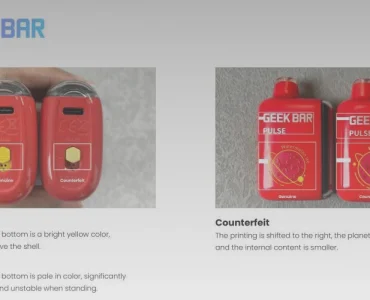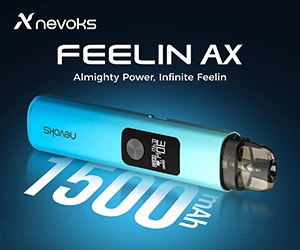In recent months vaping seems to have been attacked from all sides. First, there were mail bans, then sales were restricted, now it would appear that vapers are about to be hit financially. The ‘Build Back Better’ reconciliation bill has seen tax on vape products added again after being briefly removed. Perhaps the most startling change, which has enraged vapers everywhere, is that the proposed nicotine tax doesn’t include regular combustible cigarettes.
“Build Back Better”?
It is extremely challenging to see how it could be made any worse, especially in terms of public health. Here’s why.
What is the “Build Back Better” Bill?
The Build Back Better Budget Reconciliation Bill forms the framework of the Biden Administration’s domestic policy. It encompasses reforms and social policies in many spheres, from education to medical aid, tax cuts in certain sectors, and mandates in green energy.
Who’s paying for all of the above?
Well, this is the golden question. This “once in a generation investment” with an originally quoted 3.5 trillion price tag will obviously have to be paid for somehow. The answer, as with most government expenditure, comes from taxes.
Certain industries will find themselves subject to increased taxes to cover the cost of the “better” in other areas.
Among them, it would appear, is the vaping industry.
The Tax Hike on Vaping, What You Need to Know
How big is the tax increase?
Significant, especially when compared to regular cigarettes.
The current federal cigarette tax is approximately $1 per pack. According to the Bill on vaping: –
“…there shall be imposed a tax equal to the dollar amount specified in section 18 5701(b)(1) (or, if greater, $50.33) per 1810 milligrams of nicotine (and a proportionate tax at the like rate on any fractional part thereof).”
Want the non-legalese version? The math is pretty simple.
At a rate of $0.0278066 per milligram, a 6mg, 30ml bottle of your favorite vape juice would be subject to an additional tax of just over $5! Like to buy those big bottles in bulk? You are looking at well over $15 extra!
If you think that the damage is just being done to people’s bank balances, it is time to think again.
The Harms of the Federal Vape Tax Explained
Let’s face it, nobody likes paying more tax, but it is something to which we have all become accustomed.
So, what’s the big deal?
This tax isn’t going to make anything better.
Once again, it is a shining example of policymakers understanding the cost of everything and the value of nothing.
The federal vape tax could lead to people turning away from vaping and switching to smoking. Ironically, the Bill to make things ‘better’ also includes expansions to Medicaid, and a health care program for low-income families unable to satisfy the requirements for private health insurance.
Which social group do you think has the highest percentage of conventional smokers in the US?
If you said low-income families, you’d have been exactly right. Which product do you think those families are going to turn to? The one that has been billed to have an astronomical tax added? Or the one that has been removed from the Bill completely?
Yes, you read that right.
The cigarette tax has been removed from the Bill completely.
A cheaper and unhealthier alternative? Where is the ‘better’ in that?
One could have (possibly) have forgiven the government had cigarettes been left on the Bill. An even level of taxation would have ensured that those who turned away from vaping to smoke regular cigarettes would still have the financial disadvantage present.
This move punishes those who vape. And, by the time the now revised $1.75 trillion is repaid, it could have killed literally millions of people.
Understanding the True Cost of Everything
Putting aside any moral grandstanding about “protecting the youth,” which has since been proven to be a fallacy, there could be other answers as to why vaping is receiving “special consideration” (and not the kind that has been afforded to ‘big tobacco’ in recent PMTAs).
The truth is that vaping is hugely popular. It’s simple economics. If many people do something and make it more expensive, you increase the number of tax dollars rolling in.
As we said before, understanding the cost of everything and the value of nothing.
For years, smoking has been in decline. It doesn’t take a genius to realize that this is definitely a good thing.
The skeptical among you might also realize that, by default, the tax dollars associated with smoking have also been in decline. Good for people’s health, bad for the treasury’s coffers (pun intended).
One could argue that vaping actually has saved the government money; fewer smokers mean fewer smoking-related illnesses, freeing up much-needed capacity in hospitals, and of course, a huge amount of cash.
And we aren’t talking small numbers.
Want the bottom line?
According to the NIH, smoking-related illnesses accounted for $170 billion in direct expenditure in 2016. When you throw into the mix that it also resulted in a further $156 billion in lost productivity, you are looking at a yearly bill well over $300 billion.
According to our calculations, If the USA was to stop smoking cigarettes entirely, tomorrow, the saving made to the healthcare system alone could cover the cost of the entire Bill in a little under six years.
Want to take the accountancy a little further?
Using the same year (2016), it is estimated that tobacco revenue brought in around $14.1 billion in tax. $14.1 billion in income versus $300 billion in expenditure.
Something definitely doesn’t add up.
The Bottom Line
Perhaps the saddest thing is that everyone could have been kept relatively happy had the government thought carefully about it. Vapers wouldn’t have been hit by a huge tax hike. Smokers would have a cheaper and healthier alternative to cigarettes, and the government would have saved money.
The current iteration of the Build Back Better Bill is a double-edged sword. Not only does it financially impact low-income families, but it also pushes those very same people towards an extremely unhealthy alternative.
Vaping allows people to quit smoking for good. Making people pay with their health and wallet shows a severe oversight. For many, the cost will certainly be greater than a few tax dollars.










Add comment